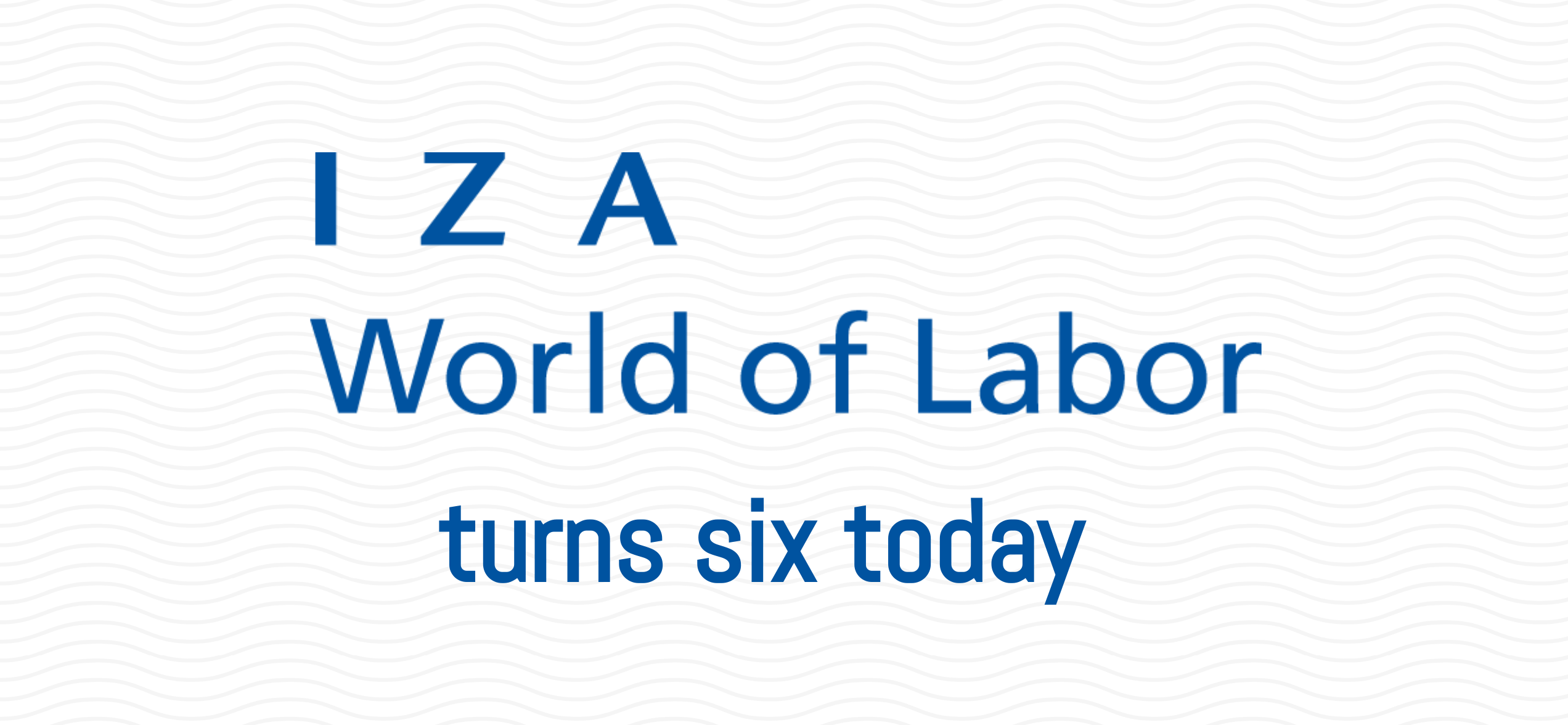IZA World of Labor turns six

Today, on International Workers’ Day, or Labor Day, we celebrate six years since IZA World of Labor first launched at the National Press Club in Washington, DC on May 1, 2014. We are proud to say that today, the website hosts over 531 articles (475 new and 56 revised) summarising the research available on key issues in labor economics.
We remain committed to providing policy analysts, journalists, academics and society generally with relevant and concise information and analysis on labor market issues.
In order to help uncover the potential impacts of Covid-19, our Editor-in-Chief, Professor Daniel S. Hamermesh, has commissioned a series of commentary articles. These aim to answer some of the questions raised about how this pandemic will affect labor markets and you can find them here. You can also visit our new key topics page Covid-19—Pandemics and the labor market.
We look forward to bringing you more relevant and concise information on labor market issues worldwide. In the meantime, here are some of our latest commentaries focused on the impact of Covid-19 on labor markets:
Mitigating the work–safety trade-off
Now it is time to devise an exit strategy that prevents economic collapse, while at the same time minimizing risks to workers’ health.
The sudden growth of employee autonomy during the coronavirus lockdown
New ideas are spreading to make working from home more efficient and meaningful but will this sudden shift in working life lead to longer term digital transformation?
The long-term consequences of missing a term of school
Even a relatively short period of missed school will have consequences for skill growth.
Fighting a coronavirus recession
Any impending recession will be different from past recessions. Find out why by reading Daniel S. Hamermesh's opinion piece.
The coronavirus crisis and the next generation
What negative career impacts may face young people graduating and entering the labor market this year?
To keep up to date on the latest articles and commentaries, follow our Facebook, Twitter and LinkedIn feeds, or subscribe to our newsletter.
__
If you'd like to read our opinion pieces on the Covid-19 crisis, you can find them below:
"Coronavirus and the labor market," by Daniel S. Hamermesh
"Fighting a coronavirus recession," by Daniel S. Hamermesh
"Pandemics and the labor market—Then and now," by Karen Clay
"Pricing the lives saved by coronavirus policies," by W. Kip Viscusi
"Health effects of the coronavirus recession," by Christopher J. Ruhm
"The long-term consequences of missing a term of school," by Simon Burgess and Hans Sievertsen
"Coronavirus, telecommuting, and the labor market," by Nikos Askitas
"Expectations about Covid-19 social-distancing measures in Italy and their impact on compliance," by Guglielmo Briscese, Nicola Lacetera, Mario Macis, and Mirco Tonin
"The coronavirus crisis and the next generation," by Bart Cockx
"Korea: A paragon of dealing with coronavirus," by Sok Chul Hong
"Economic implications of postponing the Tokyo 2020 Olympic Games," by Peter J. Sloane
"The sudden growth of employee autonomy during the coronavirus lockdown," by Elisa Gerten and Michael Beckmann
"Mitigating the work–safety trade-off," by Tito Boeri, Alessandro Caiumi, Marco Paccagnella
"Trading off lives for jobs," by Daniel S. Hamermesh
"Trends in Covid-19 infection: What New York City neighborhoods tell us," by George J. Borjas
"Labor markets during the Covid-19 crisis: A preliminary view," by Olivier Coibion, Yuriy Gorodnichenko, Michael Weber
"Did California’s shelter-in-place order work? Early coronavirus-related public health effects," by Andrew Friedsen, Drew McNichols, Joseph J. Sabia, Dhaval Dave
"200 billion hours to spend: The Covid-19 opportunity to upskill," by Peter Siminski, Emil Temnyalov
"The CARES Act—Massive government intervention in the economic crisis," by Richard Prisinzano
Please note:
We recognize that IZA World of Labor articles may prompt discussion and possibly controversy. Opinion pieces, such as the one above, capture ideas and debates concisely, and anchor them with real-world examples. Opinions stated here do not necessarily reflect those of the IZA.